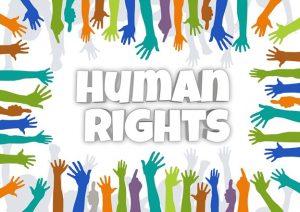 Our most recent blog discussed the impact of World Human Rights Day (Dec. 10) on those rights you might accord your outsourced and internal team members. As this month celebrates Martin Luther King Day, let’s bring the conversation closer to home and recent controversies over the rights of those who don’t conform to the American population’s definition of ‘normal’ attributes: male, white, Christian, able-bodied and heterosexual. So much violence and controversy has been highly public and inflammatory; too often, opposing parties seem to skip debate and swerve right into tragic violence.
Our most recent blog discussed the impact of World Human Rights Day (Dec. 10) on those rights you might accord your outsourced and internal team members. As this month celebrates Martin Luther King Day, let’s bring the conversation closer to home and recent controversies over the rights of those who don’t conform to the American population’s definition of ‘normal’ attributes: male, white, Christian, able-bodied and heterosexual. So much violence and controversy has been highly public and inflammatory; too often, opposing parties seem to skip debate and swerve right into tragic violence.
It’s not our position to advocate on behalf of any combination of traits other than to say that characteristics of gender, race, sexuality, religion don’t, on their own, have any bearing on one’s ability to perform most job functions; in some cases, physical ability may and, in all cases, while laws typically forbid discrimination in these arenas, your hiring policies are up to you within state and federal laws.
So, assuming you have employees who don’t match up in some way to what’s assumed to be the preferred norm (male, white, Christian, able-bodied and heterosexual) how can workplace culture or policies have an impact on productivity, on lowest-cost and speedy advances, on customer or vendor relationships and perceived reputation in the marketplace?
First, let’s be clear: your policies or behaviors around any member of your team who is treated differently simply because s/he doesn’t conform to the above defined bundle of ‘normal’ characteristics WILL have an impact on productivity, costs, speed of implementation, external relationships and reputation. As an example, here are ways you may be contributing to those problems:
Tacit approvals – when a member of your team experiences some form of discrimination, not necessarily through company policy but through bullying, improper behaviors in her/his presence, demeaning comments, exclusion from opportunities, that creates a toxic atmosphere for that person that may lead to absenteeism, withdrawal from full function engagement, even violence. If the supervisor – that could be you – says and does nothing, that adds fuel to the situation; it emboldens the perpetrators and could easily spread to other team members to the detriment of your business
When this and other human rights offenses occur, those detriments might be experienced by customers, lenders, vendors, strategic partners. They’re whispered on social media, to employees’ family, friends and medical practitioners. They show up in slower service, fewer contributions or innovative ideas from employees, and fewer numbers of external partners who’ll seek you out. How can these negative consequences be minimized?
- Make sure your employees know the boundaries of acceptable behaviors
- Display in common places – conference rooms, bathrooms, lunchrooms, website, LinkedIn profile, etc. – your policies on equal rights and equal opportunities
- Ensure employees know they’ll find a confidential, compassionate response to any concerns of boundaries that have been breached
- Perform 100% follow through on published policies
- Provide education on harassment and the subtle ways it can show up
- Honor those holidays – whether with approved days off, symbols extolling those holidays, perhaps some celebration, foods or education.
- Hire those who may find challenges fitting in to a workplace and accommodate their needs; this may be most important for those with physical handicaps
- Publish a company handbook that includes policies on any perceived slights for those who don’t conform to what has too often been perceived as the ‘norm’.
 As Mark Twain famously said: “Travel is fatal to prejudice, bigotry, and narrow-mindedness.” Let it be said of employment with your company, as well.
As Mark Twain famously said: “Travel is fatal to prejudice, bigotry, and narrow-mindedness.” Let it be said of employment with your company, as well.
For more information about human rights in the workplace, please connect with us anytime.